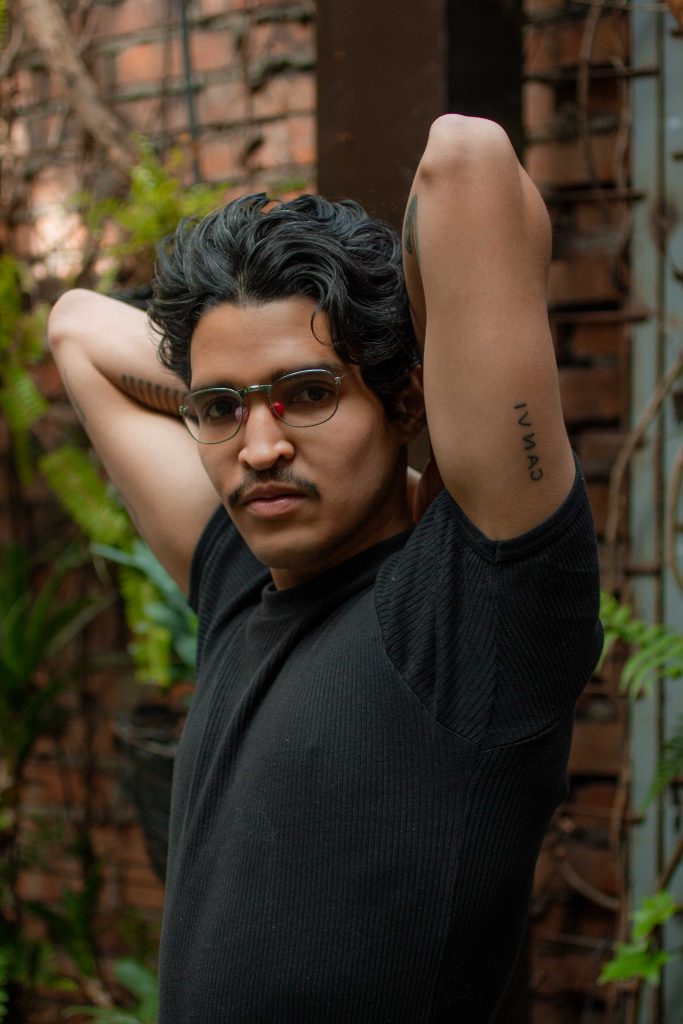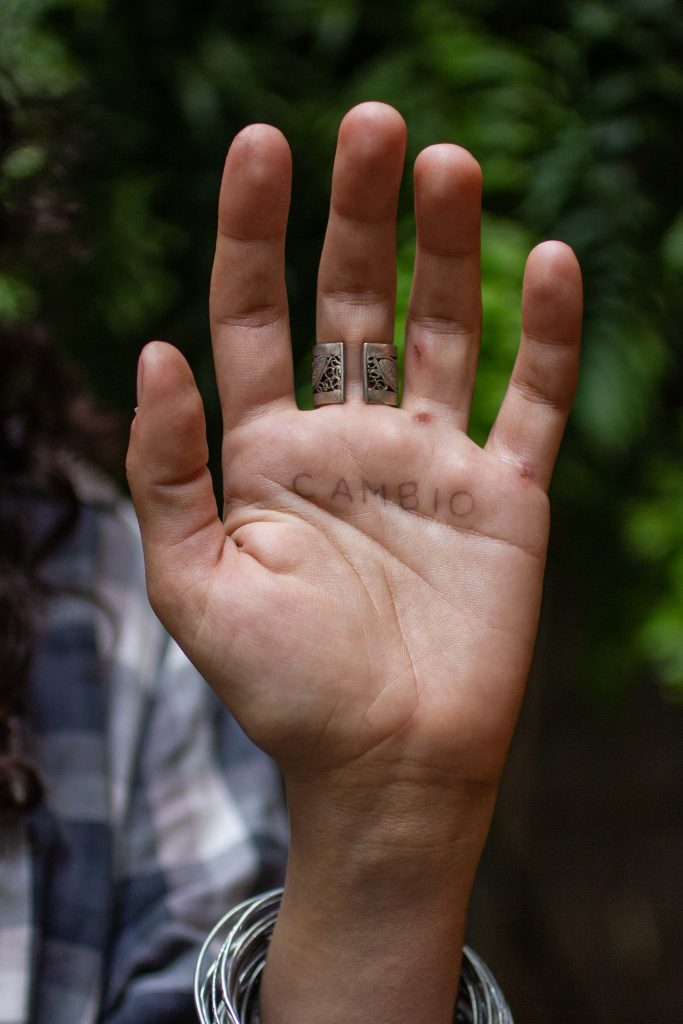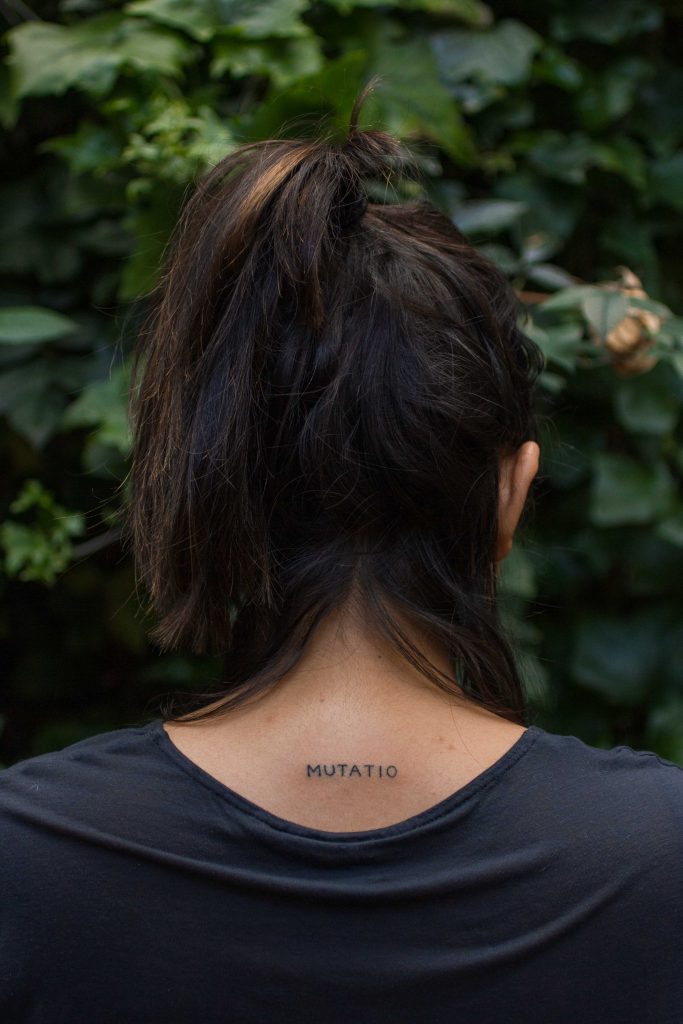The Process of Transformation, 2019

The Process of Transformation (Anton), 2019
Digital Print
The Process of Transformation is a performative piece that questions the permanence of change. In the performance, I hand-poke a tattoo of the word “change” on volunteer participants while engaging them in conversation about the ephemerality of transformation present in every aspect of life. Nothing is ever static; meaning change is constant. But transformation, on the other hand, rarely ever looks, feels, or sounds the same. Much like the Ouroboros, whose ongoing renewal can only happen by devouring itself, change can only happen with the destruction of what was previously there.
This is where tattooing enters. Through this action, I’m inflicting a wound on a body in order to change what was physically and mentally there. Tattoos are also ephemeral and volatile, since the skin’s constant renewal transforms the ink throughout the years, fading it, altering its colors and stretching out, depending on where they are placed on the body. Participants had limited choices when deciding on their hand-poked tattoo: color, the language in which it was to be written, the placement of the word on their body, and the font. Interestingly enough, almost every single individual chose to mark their body with my handwriting as their chosen font style. This was especially touching, and I viewed this as an extension of myself; a piece of my being transferred onto someone who will continue to roam the world and be a part of a network of people that may or may not ever meet again.
Those who decided to participate often approached me to tell me about the moments in their lives that were marked by this word. Life, death, politics, gender expression, climate change, illness, loss and hopes for the future were all topics of discussion. I believe I created a safe space for a free-flowing range of emotions. This is an ongoing project that so far counts with more than forty participants, where a variety of objects have been exchanged as a token of appreciation, such as songs, books, drawings, and letters. In 2020, the book “Cambio” was published, compiling 12 of the stories that make up the project.
— Melissa Pareja

The Process of Transformation (Dania), 2019
Digital print

The Process of Transformation (Lina), 2019
Digital print
Melissa Pareja’s practice is heavily influenced by her surroundings, more specifically, the urban environment and its culturally established relationships with nature. Born in Kingston, NY, she spent the majority of her formative years in Las Vegas, NV. She moved to Colombia in 2011 to study Fine Arts at Universidad de Antioquia in Medellín. Her fascination with urban landscape, bodies of water and socio-cultural dynamics have led her to explore these topics through various mediums, including performance, video, installation, and sculpture. After finishing her Masters in Fine, Electronic and Time arts at La Universidad de los Andes, Pareja moved to New York and continues to work there. Her art has been featured in a number of solo exhibitions, the most recent of which, “Resonancias del Río” (2019) at the Neebex Gallery in Bogotá, was featured at ArtBo art fair. Her large-scale video sculpture “Oda al Río” (2018), which was most recently exhibited at the Water Museum in Medellín, Colombia, received the Creative Grant for Emerging Artists awarded by the city of Medellín. In addition, Pareja has taken part in several collective exhibitions and fairs such as “Arrugas Gravitacionales” (2022) at Montenegro Art Projects, “Voltaje: Feria de Arte y Tecnología” (2021) in Bogotá, “Experimental Film and Video” (2020) at the CICA museum in South Korea, “II Muestra de Video Arte Faenza“ (2019) in Cuba, and “De per se nacion” (2019) in El Salvador.
